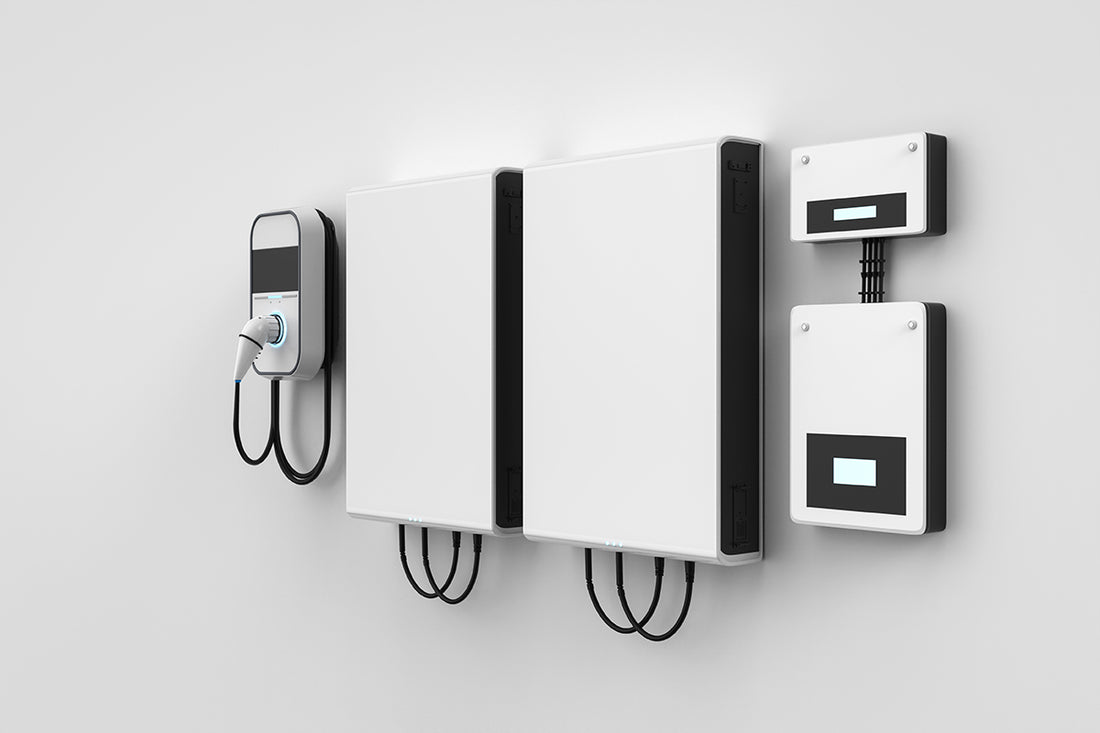
How to Choose the Right Energy Storage System for Your Home or Business
Share
With the growing demand for renewable energy and the need for reliable power backup solutions, choosing the right energy storage system has become more important than ever. Whether you're a homeowner looking to integrate solar energy into your daily life or a business seeking to improve energy efficiency, selecting the most suitable energy storage system can make a significant difference. In this guide, we'll explore the key factors to consider when choosing an energy storage system tailored to your specific needs.
Understand Your Energy Needs
The first step in choosing the right energy storage system is to understand your energy needs. This involves analyzing your current energy consumption, peak usage times, and the specific reasons you need energy storage. For homeowners, this might mean ensuring you have enough stored energy to power essential appliances during outages. For businesses, it could involve optimizing energy use to reduce costs during peak demand times.
Start by reviewing your electricity bills to identify your average monthly consumption and peak demand periods. This information will help you determine the size and capacity of the energy storage system you require.
Consider the Type of Energy Storage
There are several types of energy storage systems available, each with its own advantages and disadvantages. The most common types include:
- Lithium-Ion Batteries: Known for their high energy density, long cycle life, and efficiency. Lithium-ion batteries, particularly Lithium Iron Phosphate (LFP) batteries, are a popular choice for residential and commercial applications.
- Lead-Acid Batteries: A more traditional option, lead-acid batteries are less expensive but have a shorter lifespan and lower energy density compared to lithium-ion batteries.
- Flow Batteries: These batteries offer long-term storage capacity and are ideal for large-scale applications. However, they are generally more expensive and complex to install.
Your choice of battery type should be based on factors such as budget, space availability, and the specific energy demands of your home or business.
Evaluate the Capacity and Power Output
When selecting an energy storage system, it's crucial to consider both capacity (measured in kilowatt-hours or kWh) and power output (measured in kilowatts or kW). Capacity determines how much energy the system can store, while power output indicates how much energy can be delivered at any given time.
For residential use, a system with a capacity of 5-10 kWh is typically sufficient to cover basic needs during a power outage. For businesses, especially those with high energy demands, a larger system with a higher capacity and power output may be required to ensure uninterrupted operations.
Consider the Scalability of the System
Scalability is another important factor to consider, particularly for businesses or homeowners planning for future growth. A scalable energy storage system allows you to add more capacity as your energy needs increase. Modular systems, which let you stack additional battery units, are an excellent option for those looking to start with a smaller system and expand over time.
Scalability ensures that your energy storage system can grow with your needs, providing long-term flexibility and value.
Assess the Efficiency and Cycle Life
The efficiency of an energy storage system refers to the amount of energy that can be stored and retrieved compared to the amount of energy put into the system. Higher efficiency means less energy is lost during the storage and retrieval process, which translates to cost savings over time.
Cycle life, on the other hand, indicates how many charge and discharge cycles a battery can undergo before its capacity significantly degrades. Systems with a longer cycle life, such as those using LFP batteries, will last longer and require fewer replacements, reducing the total cost of ownership.
Factor in Installation and Maintenance Costs
While the initial cost of the energy storage system is an important consideration, it's also essential to factor in installation and maintenance costs. Some systems may have lower upfront costs but could be more expensive to install or maintain over time.
Choose a system that offers a balance between initial investment and ongoing costs. Ensure that the installation process is straightforward and that maintenance requirements are minimal to avoid unexpected expenses.
Check for Compatibility with Renewable Energy Sources
If you’re integrating the energy storage system with renewable energy sources like solar panels, compatibility is key. Ensure that the system you choose can efficiently store and manage the energy generated by your renewable sources.
Many modern energy storage systems are designed with renewable energy integration in mind, offering features like maximum power point tracking (MPPT) for solar input and seamless switching between grid and stored power.
Consider the Warranty and Support
Finally, consider the warranty and support offered by the manufacturer. A good warranty not only protects your investment but also reflects the manufacturer's confidence in the product's quality and durability.
Look for systems that come with comprehensive warranties and ensure that the manufacturer provides reliable customer support to assist with any issues that may arise.
Conclusion
Choosing the right energy storage system for your home or business is a critical decision that can significantly impact your energy efficiency and cost savings. By considering factors such as your energy needs, battery type, capacity, scalability, efficiency, installation costs, and compatibility with renewable energy sources, you can select a system that best meets your specific requirements.
At MasonPower, we offer a range of customizable energy storage solutions designed to cater to diverse needs. Whether you're looking to power your home through outages or optimize energy use in your business, we have the expertise and products to help you achieve your goals.
